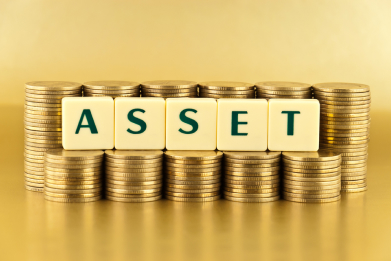
Can you buy a businesses assets only?
When purchasing a business, potential buyers often face a critical decision: should they buy the entire company, including its liabilities, or should they focus only on acquiring the business’s assets? While buying the entire business involves taking on both its assets and liabilities, buying a business’s assets only offers a different approach, one that can significantly reduce risk and increase the flexibility of the acquisition process.
In this article, we’ll explore the option of purchasing a business’s assets only, outlining the benefits, risks, and important considerations. We’ll also cover when asset purchases are the best option and provide helpful insights for both buyers and sellers.
1. Overview of Buying a Business’s Assets Only
When buying a business’s assets only, you’re purchasing specific assets of the business, rather than the whole company. This can include tangible items such as equipment, inventory, and real estate, as well as intangible assets like trademarks, patents, and customer lists.
Unlike purchasing shares in the company, which involves acquiring both assets and liabilities, an asset purchase enables you to avoid taking on any unwanted debts or legal obligations. For example, if the business has outstanding debts or ongoing legal disputes, they generally remain with the seller in an asset purchase transaction.
Internal Linking: To understand the complexities involved, check out How to structure a deal to buy a business for more information on asset versus share purchases.
2. Types of Assets That Can Be Bought
When you buy a business’s assets, you may choose from a variety of tangible and intangible items, such as:
Tangible Assets
- Real Estate: If the business operates from a commercial property, this may be part of the asset sale.
- Equipment: Machinery, office equipment, and technology assets.
- Inventory: Raw materials, stock, and finished products.
Intangible Assets
- Intellectual Property: Patents, trademarks, and copyrights.
- Customer Lists and Relationships: These are particularly valuable for businesses that rely on repeat customers.
- Brand Name: If the business has an established brand, this could be a key asset in attracting customers.
3. Benefits of Buying a Business’s Assets Only
a) Lower Risk of Inheriting Liabilities
One of the major advantages of an asset purchase is that you avoid inheriting the business’s liabilities. This includes unpaid debts, lawsuits, or other potential financial obligations.
For example, if the business has unresolved legal disputes or pending debts, these do not automatically transfer to the buyer in an asset purchase, unlike a share purchase, where liabilities are inherited.
Internal Linking: Read more about the risks of buying a business in Do you need a solicitor to buy a business?
b) Flexibility in Selection of Assets
Asset purchases offer greater flexibility. You can choose exactly which assets you want to acquire, such as only the equipment or inventory, and leave other assets behind. This can help you avoid acquiring unwanted property or liabilities.
c) Potential Tax Benefits
Buying assets rather than shares may offer tax advantages. In some cases, you can claim capital allowances on the tangible assets (such as machinery or equipment), reducing your taxable income.
For example, if you purchase a factory with machinery, you can depreciate the value of those assets over time and offset this depreciation against your taxable income.
4. Drawbacks of Buying a Business’s Assets
While there are many advantages to buying only the assets of a business, there are also some drawbacks to consider:
a) Higher Transaction Costs
Asset purchases can sometimes be more complex and costly than buying the shares of a business. You’ll need to value the individual assets, create separate contracts for each asset, and possibly incur higher legal and registration fees.
b) Difficulty Transferring Contracts
In an asset purchase, contracts (such as supplier agreements or customer contracts) generally don’t automatically transfer to the buyer. Instead, the buyer must renegotiate these contracts directly with the parties involved. This can result in delays or complications, especially if there are long-term supplier or customer relationships in place.
c) Loss of Business Continuity
In some cases, customers and employees may be hesitant to accept a new owner if the business’s assets are being sold separately. The change in ownership structure could lead to disruption, and relationships with customers, suppliers, and even employees might be affected.
5. When is Buying Assets Only the Best Option?
There are certain scenarios where buying a business’s assets only is the preferred option:
a) Avoiding Problematic Liabilities
If the business has significant liabilities, such as debts, pending litigation, or unresolved tax issues, an asset purchase can protect you from inheriting these problems.
b) Targeting Specific Assets
If you’re only interested in specific assets of the business, such as intellectual property or equipment, an asset purchase allows you to avoid the rest of the business.
c) Minimizing Risk
For new buyers or investors with limited experience, an asset purchase can reduce risk by allowing you to focus on valuable assets without the complications of business ownership.
6. Steps to Take When Buying a Business’s Assets
a) Conduct Thorough Due Diligence
As with any business transaction, due diligence is critical. For an asset purchase, you need to verify the value and ownership of the assets being sold. This includes checking for encumbrances on property, verifying intellectual property rights, and ensuring that contracts and agreements are valid.
Internal Linking: For more on due diligence, check out How long does it take to conduct thorough due diligence when buying a business.
b) Negotiate the Terms
Negotiating the terms of an asset purchase requires defining which assets are included in the deal, the price of each asset, and any contingencies related to liabilities or ongoing contracts.
c) Draft a Sale Agreement
A well-drafted agreement is essential to ensure that both parties are protected. This should clearly outline the assets being sold, the price, any warranties, and the responsibilities of both parties.
7. Conclusion: Is Buying a Business’s Assets Only Right for You?
Buying a business’s assets only can be a wise decision, especially if you want to minimize risk and avoid inheriting liabilities. It allows you to cherry-pick valuable assets while leaving behind potential pitfalls. However, it’s important to weigh the benefits and drawbacks carefully, as asset purchases can involve higher transaction costs and potential disruptions to business continuity.
At BusinessSeek, we provide a range of listings for businesses available for asset purchase. Whether you’re looking for equipment, intellectual property, or established businesses with valuable assets, our platform can help you find the right opportunity for your needs.

























